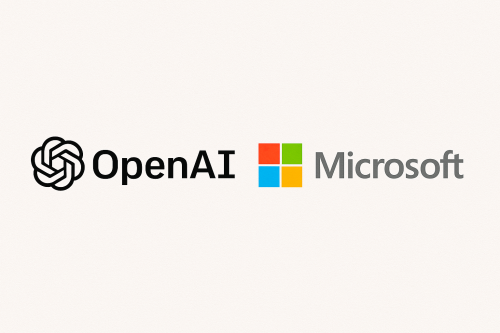OpenAI’s revenue share with Microsoft may see a significant drop by 2030. The Information reported shortly after the ChatGPT creator signed a deal to renegotiate its relationship with the tech giant that OpenAI expects its revenue sharing with Microsoft and other commercial partners to drop to about 8% by 2030 from the current 20%.
The adjustment could add up to more than $50 billion in additional revenue for the AI startup, the report said, without specifying whether it was an aggregate or annual figure.
Microsoft and OpenAI began restructuring their multi-billion-dollar partnership through a newly signed, non-binding memorandum of understanding (MOU). This agreement outlines a path for OpenAI’s for-profit subsidiary to convert into a Public Benefit Corporation (PBC), while its nonprofit parent organization retains majority control. The shift is designed to help OpenAI balance its mission-driven governance with growing financial and infrastructure demands, including capital requirements for scaling frontier AI models. As part of this plan, OpenAI’s nonprofit parent is expected to hold an equity stake valued at over $100 billion.
READ: Microsoft and OpenAI chart future together as OpenAI shifts to for-profit model (
The transformation would also allow OpenAI to access a broader range of computing resources beyond Microsoft’s Azure, reflecting a loosening of exclusivity in the original partnership. These changes are still subject to regulatory approval and final contract negotiations.
Financially, the restructured deal also revises how revenue is shared. Under current terms, Microsoft receives around 20% of OpenAI’s commercial revenue. However, OpenAI now plans to reduce that share significantly, aiming for roughly 10% by 2030, with some reports suggesting a target as low as 8%. This would represent a major shift in how profits are allocated between the two companies.
While Microsoft remains a core infrastructure and platform partner, this evolution reflects OpenAI’s desire to increase financial flexibility and reduce long-term dependency. The move is also seen as preparation for OpenAI’s potential future public listing or broader fundraising initiatives. Regulators in jurisdictions like Delaware and California are currently reviewing the arrangement to ensure compliance with corporate governance and nonprofit accountability standards.
READ: Google Gemini’s ‘Nano-Banana’ trend surpasses OpenAI; tops Apple App Store (
The Information reported, citing a person familiar with the discussions that the Sam Altman-led company is also negotiating the amount it will have to pay for servers rented from Microsoft.
The evolving partnership with Microsoft marks a pivotal moment for OpenAI, signaling its transition into a more independent and financially agile organization.
The proposed restructuring into a Public Benefit Corporation, with the nonprofit retaining majority control, allows OpenAI to pursue commercial growth while staying aligned with its mission to ensure AI benefits humanity.
Loosening Microsoft’s exclusivity also opens the door to broader partnerships and diversified compute resources. These changes position OpenAI to better navigate a highly competitive and capital-intensive AI landscape. However, the success of this shift will depend on regulatory approvals and how effectively OpenAI can balance investor expectations with public interest commitments in the years ahead.

